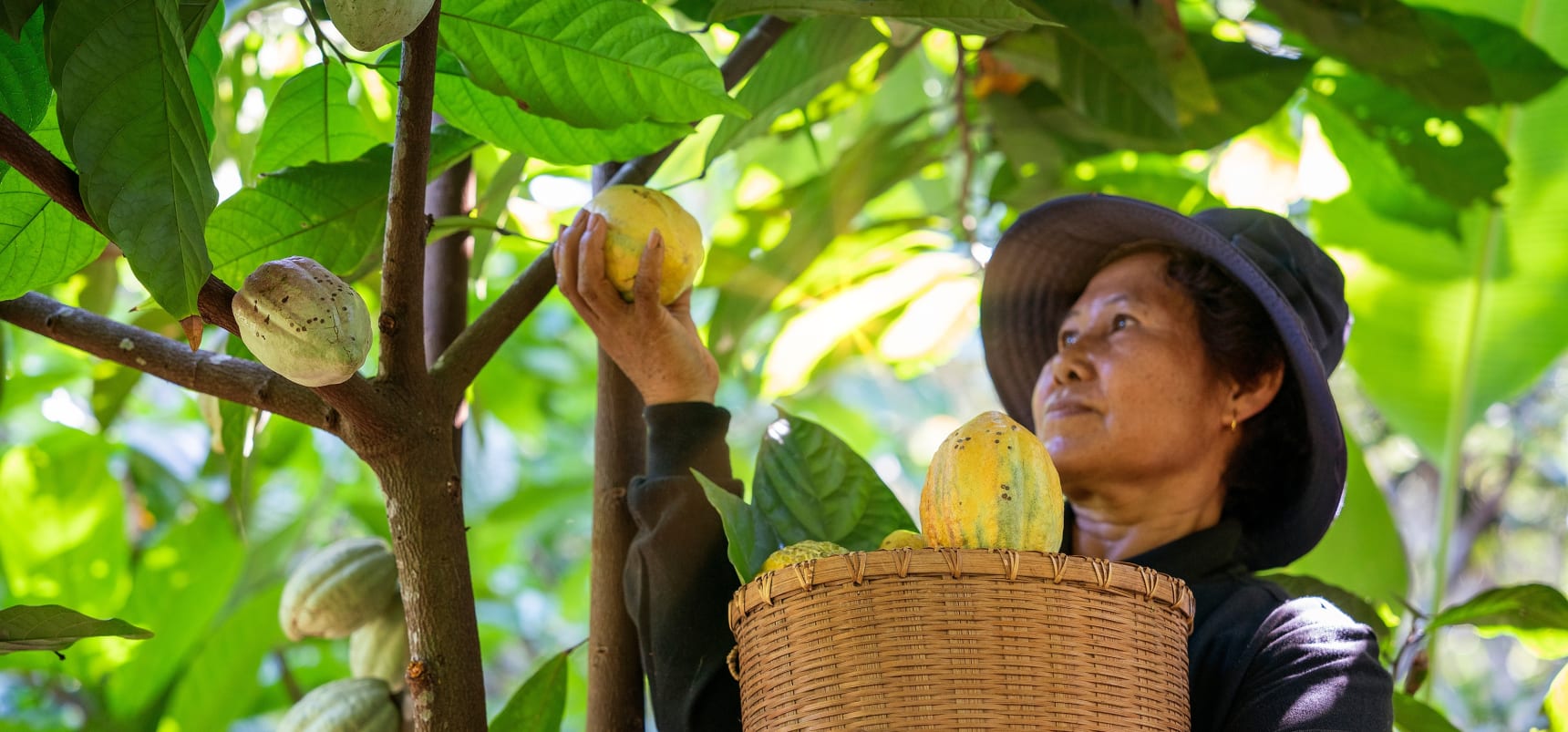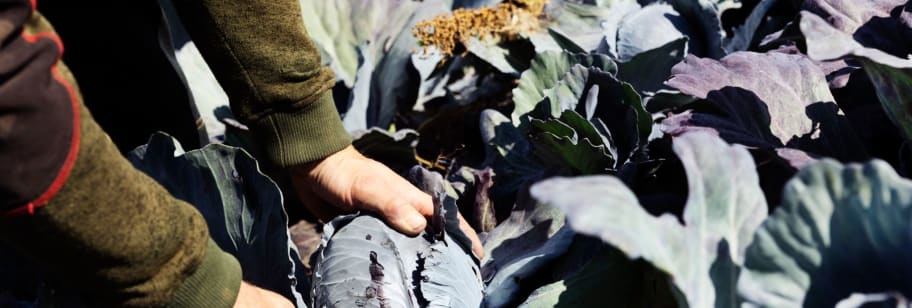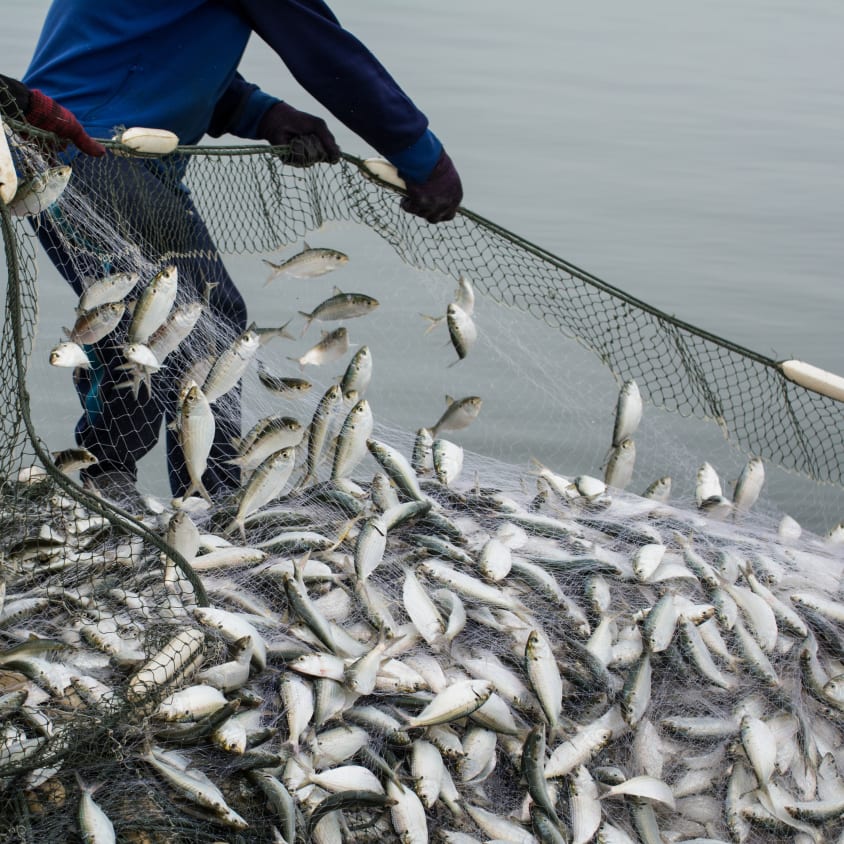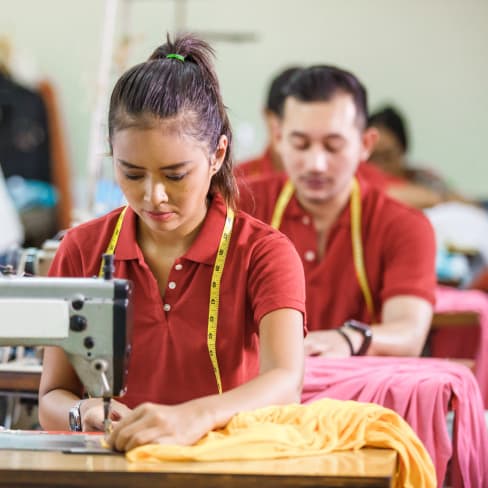
Every person. Every cooperation. Every action.
Salling Group is Denmark's largest retailer and offers a very deep and wide range of products. In our work with responsible sourcing of both food and non-food products, we use a classic approach with due diligence, aimed at addressing the potential negative impacts that our business activities may cause. Read more about our responsibility below.
Our responsibility
All the processes around responsible sourcing are managed by and anchored in the Salling Group's quality department under the leadership of our director of 'Quality & Responsible Sourcing', who acts as a support function for our commercial units.
The 'Responsible Sourcing' team works systematically to map our supply chains to ensure that our Code of Conduct and policies within responsible procurement are adhered to. The Code of Conduct is a set of ethical guidelines for how an employee must be treated, including conditions around pay, safety, the right to organise, working hours and so on. The content is based on international conventions such as the UN's Universal Declaration of Human Rights, the OECD's guidelines for multinational companies, as well as the ILO conventions.
Risk assessments are necessary to understand where and when our business activities (sourcing) have potential negative impacts on the people involved in the actual production. At the same time, it is important to look deeper into the scope of the individual negative effects, as we want to intervene where it has the greatest significance and impact. In our risk assessments, we pay particular attention to high-risk countries and industries. Principally, we use amfori's Country Risk Classification, which is revised on an annual basis.
In addition, we regularly supplement this with internal risk assessments with the aim of uncovering special challenges that often reoccur across the same industry – this could, for example, be the use of migrant workers in the fruit and vegetable industry in European countries or child labour in the cocoa industry in Ghana and the Ivory Coast.
The next step after the risk assessments is to develop and implement necessary measures to minimise or completely eliminate the identified risks. As we touch many different supply chains, our Responsible Sourcing team keeps a sharp eye on widespread problems and possible solutions. In this work, we gain a lot of valuable knowledge through the dialogue brought about by our memberships of various organisations that have ethical trade on the agenda. This is also instrumental in keeping us updated on relevant topics where responsibility needs to be taken.
In cases where challenges of a critical nature are identified, Salling Group first of all engages in close dialogue with the manufacturer involved and the associated supplier. When the findings have been thoroughly mapped, a more detailed plan is drawn up for how to rectify the situation. In this process, our suppliers are expected to implement and put the necessary measures into force. These initiatives are very likely to set a precedent for how Salling Group handles similar cases in the future.
At Salling Group, we aim to use a solid base of production sites as this creates a practical basis for the further development of individual production stages, both according to working conditions but also quality and other parameters. We emphasise capacity building as the individual producer often needs support, knowledge and practical tools to create the best framework for their employees and thus live up to our Code of Conduct.
In order to ensure an effective implementation of our 'due diligence' procedures, it is mandatory for employees with purchasing responsibilities to participate in training courses that address Salling Group's sustainability strategy, human rights, product risks, as well as responsible purchasing practices. The aim is to increase awareness of positive and negative consequences as a result of the individual buyer's decisions, as well as to align our work with the Code of Conduct across the organisation. The training course runs in two tracks for Nonfood and Food respectively.


